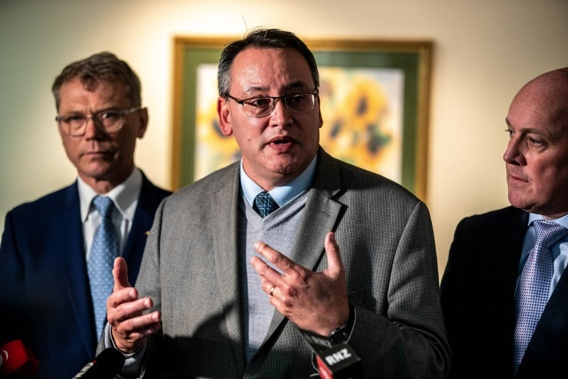
The countdown to the Health Minister's revised health targets amidst dire specialist wait times
Health Minister Shane Reti has confirmed that tackling wait times for specialist treatment will be among the revised health targets set to be announced "in the coming weeks".
The number of Kiwis overdue for a specialist appointment has sharply increased.
Data revealed by the Ministry of Health confirmed nearly 60,000 New Zealanders are overdue for their first medical appointment with a health specialist and officials understand there are more referrals than the sector can treat.
Association of Medical Specialists executive director Sarah Dalton told Tim Dower on yesterday’s Mike Hosking Breakfast that the issue has been a long time in the making because the sector has failed to employ enough staff for hospitals.
She said the pattern has emerged year after year. The union's concerns were initially dismissed by the former district health boards and only now acknowledged by the new health body Te Whatu Ora.
"At least Te Whatu Ora agree it's a problem and say that they're working on it - but it's not an easy or quick fix and it is multi-factorial," said Dalton.
"It is about staffing, but it's just a piece of the puzzle and it is the part we're most interested in as a union for doctors and dentists."
When approached by ZB Plus with Dalton's claims about the wait times previously being dismissed, Reti said he "absolutely recognised" that wait times were too long and that the issue had been spiralling out of control even before the Covid-19 pandemic.
He said his coalition team is "more committed than ever" to drive change and outlined what his soon-to-be-revealed health targets would encompass.
"We all want shorter times for first specialist assessment, shorter wait times for surgery, shorter stays in the emergency department, faster cancer treatment and improved immunisation rates," he told ZB Plus.

Dalton explained that the specialist wait times, which stretch across areas such as cardiology, orthopaedics and dermatology, were resulting from hospitals being overwhelmed with acute patient care.
Patients needing immediate medical attention will naturally jump the queue ahead of those who need specialist attention, but perhaps not as urgently. When this keeps happening, Dalton said, the queue keeps gets longer for those still needing specialist care.
"Until we get that sorted out it's going to be too hard to fix," she said.
"Also, most studies suggest that once you get in front of a health professional, particularly a specialist, they're very efficient. They know how to manage a system short of resources - there's not a lot of room to tweak at this point in time, especially given the staff shortages."
Dalton believed the answer is to put staff retention first, incentivise those in the workforce to stay and not be lured off to the private sector or overseas.
Then comes recruitment and then home-grown talent, Dalton said.
However, the union executive said she'd experienced brick walls to push through in bargaining for better deals to keep staff employed in the public sector.

"The typical answer from the employer is that we don't have enough money to give the kind of salary increases you think are needed, and that's often the narrative, saying to the nurses ‘we don't have enough money’," she said.
"It's time for the health funder that is the Government to say 'how much are you willing and prepared to spend on health?' It's an investment, not a cost and I think it's something that we have to have a better look at and better conversations about."
The health minister echoed Dalton’s point about focusing on staff retention.
He said "the single biggest hurdle" for the health sector as it grappled with issues like wait lists was "workforce, workforce, workforce".
"Helping train, strengthen, support and retain our workforce has to be an absolute priority because it means we’ll then be in a stronger position to support New Zealanders and their health needs."
Reti said he'd learned that nursing vacancies in aged-care facilities had significantly reduced, meaning the Government's focus could be applied to other areas of the sector.
He confirmed an additional 50 new medical students would be starting in the next few weeks and soon, the Government would be signing a memorandum of understanding to progress assessment of a business case for a third medical school at Waikato University.
"As Minister of Health, I want New Zealand to have the trained health workforce it deserves so we can deliver the services people need," he said.
Dalton said the conversations need to improve about the collective responsibility across the sector and Government to increase the investment into health prevention, because "staying well is the best option".
"Some of us are always going to get sick, things are going to happen that will see a number of us in hospital no matter what we do, but there are some other social investment pieces we can start working on that might, over time, help reduce demand on our hospital system."
Take your Radio, Podcasts and Music with you









